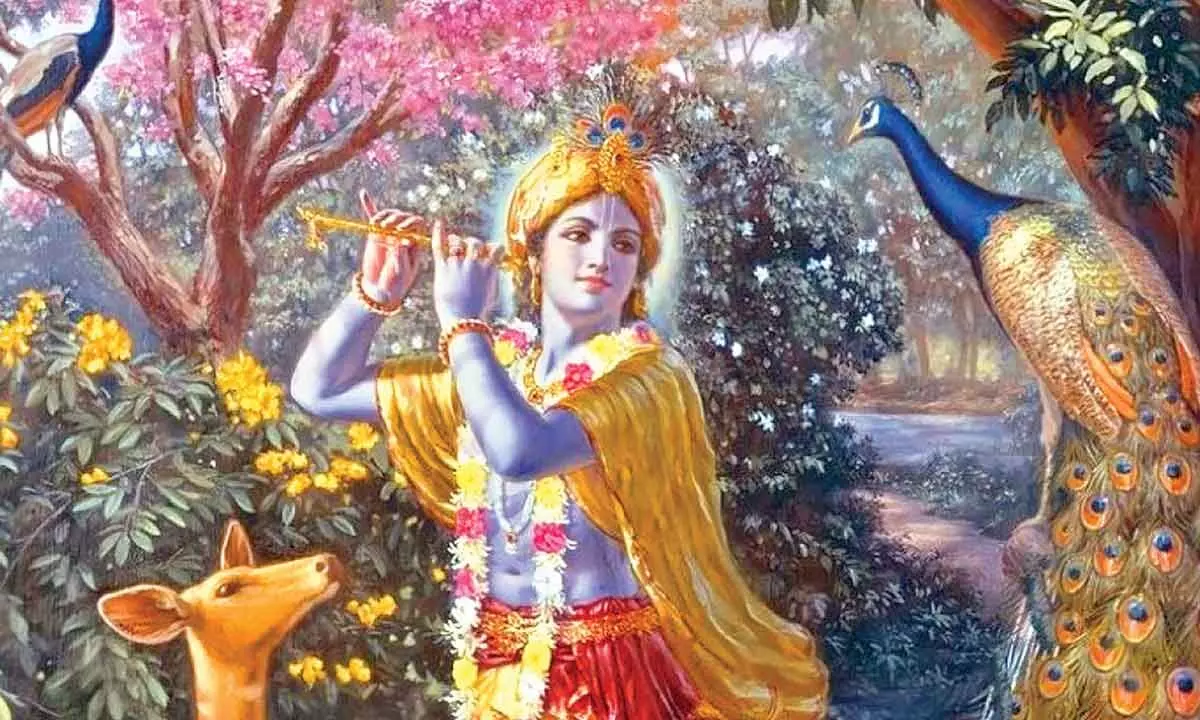What To Know and When?

First, it refers to the Mahabharata in which the game of dice is a crucial moment. The Ramayana is the text which talks of the man-woman relationship from various angles. The Srimad Bhagavatam is the text which talks of the butter-thief Krishna
As we age, there are moments when we feel that we would have been better if we had known a particular thing in an early stage of life. A thought flashes, ‘I would have been a better manager, had I known this’, or ‘I would have been a better leader, or a better human being’. There are things which have to be known at the beginning of a person’s career, things during youthful days, things which one has to know at the later stage of life, for better inner harmony and happy relationships with others.
An old Sanskrit verse says cryptically: ‘wise persons spend their mornings discussing gambling, discussing women in the afternoon, and admiring the acts of a thief in the night’. Obviously, we have to look for a different meaning. The morning of life is the formative period, which may extend up to the mid-twenties, when a person should know what is right and wrong. The afternoon is the period in which the man-woman relationship is worked out. The evening of life is the time when a person retires from active work and sometimes gets engaged in knowing the meaning of life. At this stage a person is called a spiritual seeker.
Now we get the clue about what the verse says. First, it refers to the Mahabharata in which the game of dice is a crucial moment. The Ramayana is the text which talks of the man-woman relationship from various angles. The Srimad Bhagavatam is the text which talks of the butter-thief Krishna.
Many times, I feel I would have been more mature in human relations if I had known the ethical debates in the stories of the Mahabharata in the beginning of my career. Knowing the story is not the point, but analysing the ethical questions is important. For instance, we know that a king goes and puts a dead snake on the neck of a sage who was in meditation. We have to examine whether what the king did was right or wrong. The son of the sage cursed the king. Was it ethically right for his status as a sage? Was he not expected to show forgiveness? Such stories, covering innumerable life situations, abound in the Mahabharata. The book relates to what we call the Dvapara yuga. The word Dvapara means a dilemma. We cannot certainly say as to who is right in a situation. Good and bad are seen on both sides. We have to see the preponderance of dharma in each situation by close analysis. Human situation is the same, but we have to extrapolate the present details to draw lessons. People come to grief due to anger and greed. Political intrigues and ethics are great lessons for all times.
The Ramayana is about dharma at the individual level, while the Mahabharata is about man as a political animal. The afternoon in life is the time when a person evolves a relationship with another person for continuation of family line and continuation of dharma. Women and men in different cultural situations are presented here. The relationship between Rama and Sita is divine, which can be sustained by people of great moral fiber. We are more comfortable to see relations between sexes in Kishkindha which is closer to human society. In Lanka, however, it is a demonic relationship where the woman is an object of pleasure. All these exist at all times, and they present lessons to us.
Srimad Bhagavatam was a narration of the stories of great devotees to a person who was about to face death in a week. It is the time when a person is surrounded by anxious relatives, but in this case, king Parikshit is seen surrounded by enlightened sages. By the time death took his mortal body, Parikshit had already realized the infinite nature of his self. The Bhagavatam has to be read even at a young age, but it makes better sense in the evening of life, as it tells us how to live gracefully.
All the three texts were in the traditional curriculum for all sections of Indian society till recent times. It would be a great blessing to know these in one’s lifetime.
(The writer is a former DGP, Andhra Pradesh)










